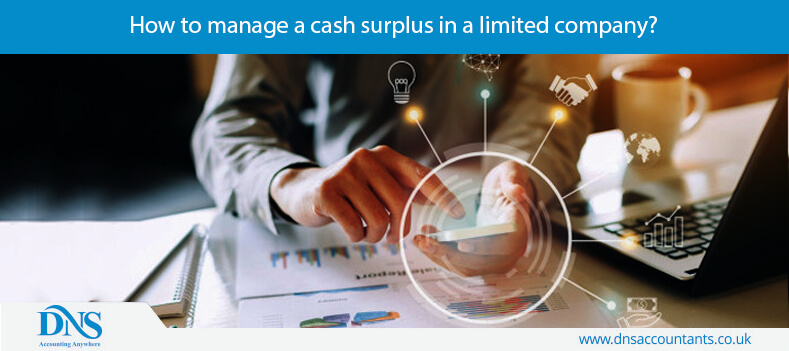Managing of cash surplus looks like to be a more difficult task than just earning it. There are many options available with the limited companies to invest cash surplus or retained earnings. Firstly, you must work out how much amount of cash surplus is available with your company for investment so that you are able to make proper estimate of the earnings that you must retain in order to pay your liabilities, whenever they become due. It will be considered a good step, if you will go forward only with the retained profits for investment purpose rather than using your bank cash which is needed at times to pay corporation tax on annual basis & VAT and PAYE on quarterly basis.

If you are planning to invest your company profit, you may have the following options available with you –
In case you are having any questions regarding managing of cash surplus in a limited company, Kindly call us on 03330886686 or you can also e-mail us at enquiry@dnsaccountants.co.uk
Also See: Limited company tax basics for professional contractors
Also See: Complete guide on Directors Loans Accounts
Any questions? Schedule a call with one of our experts.



_Let_Property_Campaign_-_HMRC_Tax_Disclosure_Guide.png)




